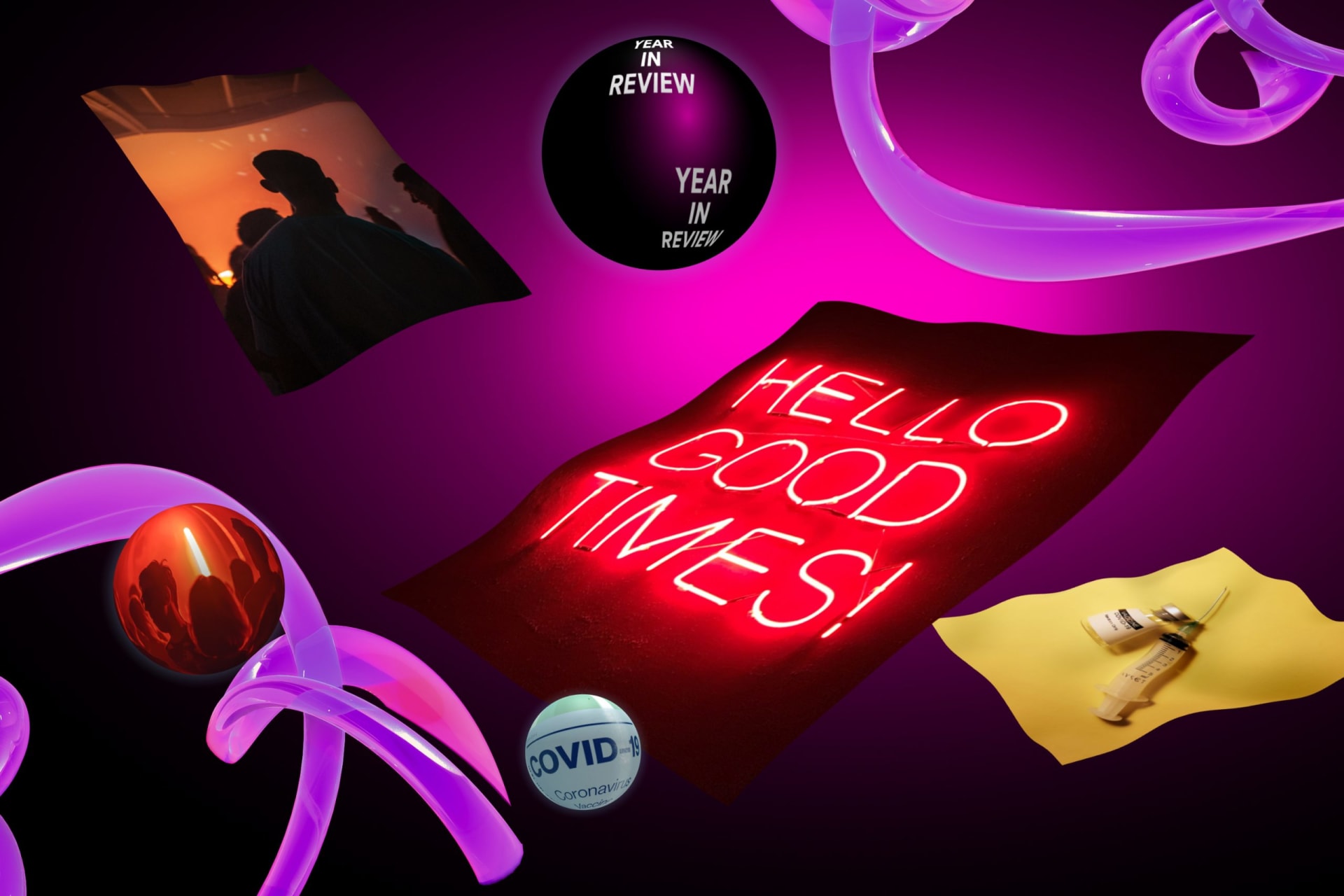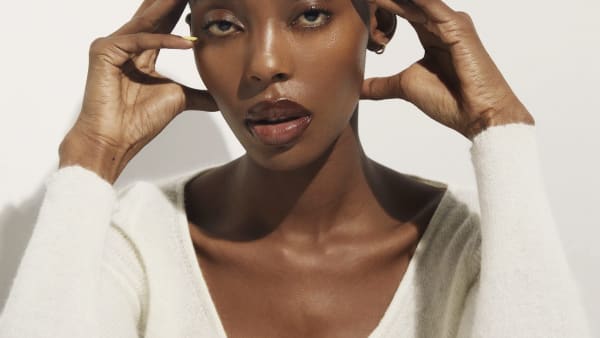

Year in review: Has 2021 delivered on its promises?
Andra Nicolayi reflects on a year of hope, unrest and incremental progress
A friend recently started an email saying something along the lines of ‘hope you are doing well’… “with the winter and COVID and the fascists.” Living in Romania, where we’re currently torn between a disastrous handling of the pandemic and the rise to power of a far-right party in Parliament backed by the Orthodox Church, I can’t think of a better way to summarize our current situation.
Since the beginning of the ongoing pandemic, I have always been reluctant at the universal call to operate at normal or to keep our usual routines. In the neoliberal landscape, it felt like there was no place for those of us who could not cope, despite the general discourse on slowing down, self-reflection and the multiple invitations to reassess our current system and ways of living.
For those of us working in nightlife the blow was even harder, considering that all aspects of our industry (live events, gatherings, travel) were suddenly made impossible, indefinitely. Which, for many, was the basis of our entire life. Somehow, we survived 2020 and 2021 came as the year of hope. With new vaccines approved and readily available in most Western countries, there was an elated feeling in the air, a shared sentiment that this might all be over soon. Now, with new lockdowns and a staggering number of deaths across Europe, I can’t help but wonder – what went wrong?

Moralizing, Finger-pointing and Online Outrage
Our predominantly confined existence in 2020 saw an increase in online activity, which led to more scrutiny terms on a global scale. While anti-racist movements, calls for diversity and online callouts did receive more attention, the focus online in 2020 has been a moralistic policing of parties, illegal raves, and other pandemic transgressions.
Accounts like Business Teschno were reporting on big DJ names playing plague raves in summer 2020 and demanding accountability, with barely any repercussions or changes happening. Fairly often, the callouts tend to skew towards simple virtual signalling than legitimate moral stances, like the recent criticism of DJs playing in Saudi Arabia shows, the focus was disproportionately directed to Black DJs Carl Cox and Jeff Mills, despite many other artists accepting the dubious government-backed gig.
Post 2020, is it more important to appear responsible/morally superior online than enact actual change?
If 2020 taught us anything, is that people will continue to do what they want, no matter what. Whether by ignorance, a secret death wish or sheer selfishness, there’s always going to be illegal events or places with fewer restrictions or where COVID’s existence is ignored altogether. This kind of behaviour has been going on since the bubonic plague, when the Church’s urge for piety were met with orgies in the cemetery after the first wave.
In the midst of the moralizing panic, musician, DJ and label-owner Aerin Ercolea argues for harm reduction rather than finger-pointing. “Caring about your community means recognizing space for activity that may make you uncomfortable or not want to partake in”, she writes. “Using what small amount, we have learned to help people make safer “bad” choices is better than creating shamed space where only unsafe ‘bad’ choices occur.”
At the start of 2021, call-outs and DJs urging others to stop playing illegal raves were still the dominant discourse. With maskless pilot parties in the UK labelled as scientific experiments taking place in the spring, the focus shifted from illegality to legitimacy. Despite some criticism, the events had little backlash and ushered in the rush for reopening.
As the summer rolled in, the term plague rave seemed to have been abandoned altogether. Despite big differences in vaccination numbers across the globe, Europe and North America were ready for a new festival season, with events from Honcho to Unsound going forward as scheduled. While the occasional post urging people to keep wearing masks and get tested before and after parties despite being vaccinated would surface, the vast majority of the industry rushed back into pre-pandemic mode.
Business as Usual, Mostly
Perhaps one of the most painful things about summer 2021 was how quickly things returned to perpetuating the status quo. All of a sudden, talk of COVID and introspection was reduced to a minimum and, despite the looming threat, people were eager not only to go out, but to play and tour in hopes of making up for lost income.
Despite the long talks about racism in the industry and the contrived 2020 efforts of showcasing more Black, POC and non-white artists, the 2021 line-ups were painfully familiar. Dekmantel’s for example, was the same mix of Rush Hour-affiliated Amsterdam DJs and international headliners,
Kenyan artist Joseph Kamaru, who has seen a meteoric rise under his KMRU moniker, thinks there have been some minor changes on the diversity and curation, although there’s “still a long way to go to make these line-ups super diverse.” As far as his own bookings go, he consults with his agent to avoid potentially tokenistic situations. “We always consider the final line-up, and if the festival is balanced in its curations with regard to gender, identity and race,” he says. “Some bookings that don’t feel right, [I think] it’s better not to take them.”
Since 2013, feminist platform female:pressure has been periodically conducting the FACTS Survey, focused on the gender of the performers at festivals, which played a huge role in highlighting the gender inequality in the music industry.
Long-time member Aiko Okamoto sees a positive tendency towards change, even if it’s a slow process. “I can’t say specifically for this year, but there is a clear tendency that more and more festivals book DJs/acts of divers genders and backgrounds,” she says. “I think, in general, we see more growing and glowing scene of Black and non-white female*, trans, and non-binary artists.” Okamoto posits that despite this, “it’s still a very Eurocentric, colonial industry. Streaming platforms like Currents.fm made it possible to get to know more scenes from outside the West and I wish, we will have more lively exchange between continents.”
For the upcoming survey, the group decided to also include race, not just gender, as a category. “We were counting artists gender since 2012 and this year we are counting also racial ratio. Feminism should always be intersectional and empowering for everyone. We do our survey, in my opinion, not to just point the finger but make our scene more fun and safer for all music lovers.” Okamoto hopes the can contribute to a better club experience in the future.
Ultimately, communities and institutions look like their leaders, and unless major changes start to take place at the top, there will always be little to incremental change. Despite the current popularity of online activism, profits will always be the driving force in an imperialist, white-supremacist society.
Small, independent initiatives like Anno 0 demonstrate the possibility of presenting a diverse, thriving local scene, but events like these are the exception rather than the norm. The Lisbon festival catered mostly to Portuguese audiences, aiming to strengthen the existing community and highlight underrepresented talent rather than become another international tourist attraction, which is a powerful stance in an era where everyone is looking to scale.

The Big COVID Blunder and the Very Real Fascist Threat
In early October, an anonymous online group called the Eastbloc Antifascist Sound Alliance began to garner online attention following a presentation at Prague’s Lunchmeat festival. The group, created as a mutual aid and exchange network between artists in former Soviet territories, started pointing out the inequalities between East and West and the invisible Iron Curtain still present in media coverage and bookings.
“The historical position of Eastern Europe within global material and immaterial flows has been a semi-peripheral one, depending on and serving the Western core, while continuously trying to maintain its position as a less exploited territory than the Global South and the further East,” scholars and activists Ana Vilenica, Ioana Florea, Veda Popovici and Zsuzsi Pósfai say in a collective interview. While Eastern Europe may not be part of the Global South, it is still a territory operating under an imperialist-colonial logic of extraction and exploitation.
This debate has been chronicled by Czech journalist Miloš Hroch, albeit under a very forgiving lens. The fear of repercussions in criticizing the established Western structures became very real when Russian label Klammklang posted a series of memes that resulted in British journalist Richard James Foster threatening Moscow festivals with lack of further coverage.
Meanwhile, countries in the region faced a looming fascist threat as growing far-right policies and anti-LGBTQ+ laws were taking root in Hungary, Poland and Romania, to little international press. One of the more triumphant moments was seeing young Polish queers vogueing to Avtomat’s Stop Bzdurom (The Bad Gays) during a protest.
Fascism also entered the music discourse as writer Jean-Hugues Kabuiku exposed Dominick Fernow’s Nazi ties, urging the industry to act. While publications like EB or The Quietus published an addendum, a petition has been launched by the Anti Fascist Music Alliance, calling publications like Resident Advisor and Pitchfork to follow, as well as Ostgut Ton, which handled Dominick Fernow’s bookings in the past, to release a public statement about their plans to prevent artists with fascist ties to perform at their venue.
As a Romanian, seeing how the vast majority of Central and Western was enjoying festival season in October as if COVID was a thing of the past (I saw a total of 3 people wearing masks indoors at Lunchmeat), my country was in the throes of a tragic 4th wave. The situation in Bulgaria and Serbia was equally dire, due to the countries’ low vaccination rates. During this time, German newspaper Morgenpost published an article titled The Idiots of Europe, blaming the countries for their own demise.
Less than two months later, Germany was struggling to grapple with its own new deadly wave. On November 27th, Berlin had just introduced the 2G+ rules for clubs and bars, meaning punters need to be both vaccinated and tested negative within 24h of the event. At Neukölln cultural space Oyoun, the Frei(T)räume Envisioning Free Space conference was taking place, an event aimed at tackling current issues in the industry. However, among the topics ranging from NFTs and body work to harm reduction, a larger discussion on reaching a COVID consensus was absent.
One of the most direct mentions of COVID was during the Future Technologies of Queer Raver Care panel, with members from Mina, Kosmicare and Lecken. Besides the talk about harm reduction and safe drug use, Maria F. Scaroni from Berlin’s queer-femme club collective Lecken presented a series of strategies they’ve been implementing when dancing and gatherings were forbidden. Actions like the Techno Drift, an exercise combining rhythmic motion outside of dancing, were an innovative form of exploring movement and finding the comforts of community outside the regular clubbing paradigm.
Perhaps, as [the leftist art publication] White Pube’s co-founder Gabrielle de la Puente wrote, what we are lacking is not just the lack of a united front and communal action, but also a lack of imagination. Not everything can be fixed with moving things online and going through endless cycles of lockdowns and reopenings.
“The challenges have increased – we need to make this really important connection between our network and networks around the city,” social ecologist and urban activist Michael LaFond said during his panel. “We need to organize our local spaces: we need to defend them but also think about the bigger picture.”
Ultimately, the nightlife industry cannot surpass this crisis without strengthening collaborations, both with local governments and officials and international networks. Maybe big European and US festivals should take a plea to booking more local artists. An industry guideline on hiring more diverse staff across the board, from bookers to bar staff, would also something worth implementing. Perhaps imagining places of care and education outside the club like community centres for ravers, and investing in widespread community outreach programs would also yield positive results.
If anything, things can definitely not go on as they have been, and unless we all make a coordinated effort, nothing will change. Change is never an easy or comfortable process, but solidarity and perseverance can go a long way.
Andra “Amber” Nikolayi is a Bucharest-based sound artist, DJ, and researcher. Zi contributes regularly to Bandcamp Daily and to Romanian pop-feminist mag Cutra.

Published December 14, 2021. Words by Andra Nicolayi.












Follow @electronicbeats